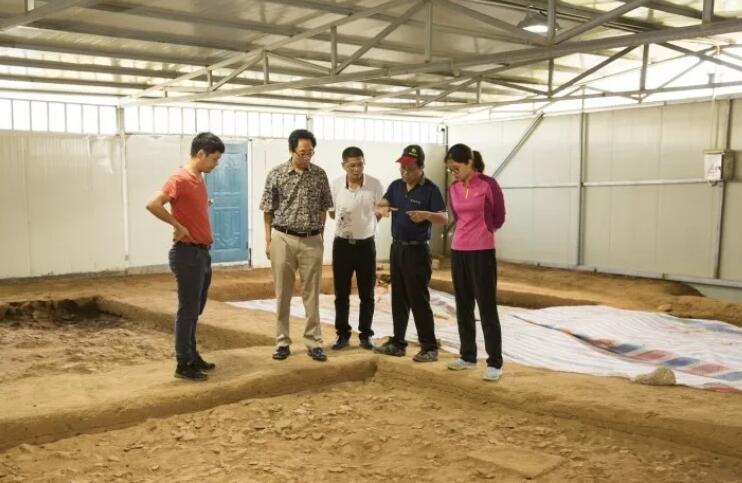Pingtan’s new-found ruins attract US archaeologist
Pingtan Net | Updated:2018-07-31 | Lin Kongbo

The archaeological team conducting a field survey on the progress in the Guishan Archaeological Site[Photo provided to ptnet.cn]
A team of archaeologists were conducting a field survey on a new-found historical site on the morning of July 30 in Beicuo Village on Pingtan International Tourism Island. Cultural relics dating back to 7000 to 10,000 years ago may be excavated on the site, according to a staff member.
The research team consists of Jiao Tianlong, Director of the Asian Department of the Denver Museum of Fine Arts as well as Professor of the University of Hawaii, and other researchers from the Archeological Research Institute of Fujian Museum.
The research team also probed into the progress made in the Guishan Archaeological Site and put forward proposals for the planning Keqiutou Archaeological Park in the hope that a platform will take shape where scholars from China and abroad can conduct exchanges and cooperation.
Pingtan boasts rich Austronesian resources for archeologists, which attracted Jiao to work with Fujian Museum for the research on Pingtan’s Austronesian culture 17 years ago.
“Pingtan is one of the birthplaces for the Austronesian ethnical group. We attach great importance to every research progress and prioritize Pingtan as a key area for studying this culture,” said Jiao, adding that the entire Pingtan island is an extremely important historical site which makes up for the huge part of the gap in their exploration of the pre-historical Austronesian culture.
Jiao Tianlong noted the Austronesian is currently the only ethnical group in the world that mainly inhabits on islands and is widely distributed to the east on the Easter Island in the eastern Pacific Ocean, west to Madagascar in the Indian Ocean, and north to what is now Hawaii and Taiwan, and south to New Zealand.

